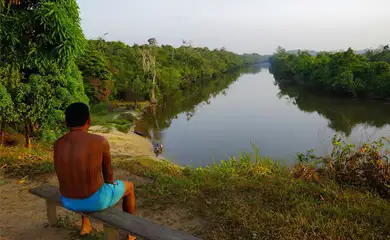Lula signs law regulating Brazil’s carbon market

President Luiz Inácio Lula da Silva has signed into law a bill that regulates Brazil's carbon credit market, establishing rules for greenhouse gas emissions. The law was published this Thursday (Dec. 12) in the country’s Official Gazette, and the signing was announced at the Economic and Social Sustainable Development Council (Conselhão) meeting in Brasília.

The new law regulates the purchase of environmental preservation credits to offset greenhouse gas emissions. Conservation and restoration of native vegetation will generate credits, while emissions will create debits that need to be offset. The law establishes the Brazilian Greenhouse Gas Emissions Trading System (SBCE) and divides Brazil's carbon credit market into two sectors: regulated and voluntary.
The regulated market involves initiatives by the government and will have a governing body responsible for establishing rules and applying sanctions for violations committed by organizations. Meanwhile, the voluntary market pertains to private initiatives, offering greater flexibility.
From now on, companies, organizations, and individuals can offset their emissions by purchasing credits linked to preservation initiatives. The goal of this market is to shift the social cost of pollutant emissions onto the emitters, contributing to global efforts to combat global warming and climate change.
President Lula signed the new law on Wednesday (11) at the Sírio-Libanês Hospital in São Paulo, where he is undergoing treatment for a brain hemorrhage resulting from a domestic accident on October 19.
The Minister of Institutional Relations, Alexandre Padilha, stated that all aspects of the text, which was approved by Congress last month, had already been discussed with Lula, adding that he remains in “constant exercise” of the Presidency.
“It might not have been possible to approve the new regulatory framework for the carbon market in our country without the effective participation of the council members. During moments of deadlock in the debate, they stepped in, particularly economic actors from the agribusiness sector, who brought their perspective to the table. This greatly facilitated the dialogue in the National Congress,” said Alexandre Padilha.
Council
The Economic and Social Sustainable Development Council, composed of representatives from civil society, advises the president of Brazil on public policies and government guidelines. During Thursday’s meeting, additional proposals developed by the council were presented.
One proposal from the council's Economic Affairs Chamber, in collaboration with the Brazilian Federation of Banks (Febraban), includes a document with 40 recommendations to reduce the cost of credit in Brazil.
This marks the fourth comprehensive meeting of the council since its reorganization in 2023. In President Lula’s absence, Vice President and Minister of Development, Industry, Commerce, and Services Geraldo Alckmin chaired the plenary session.






